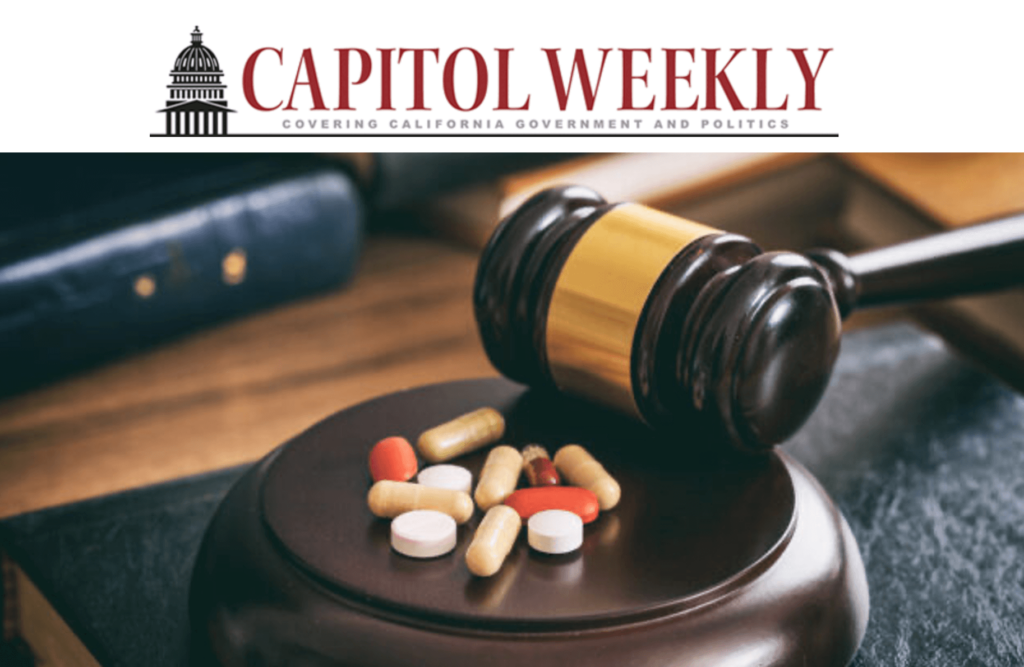This article was originally published in Capitol Weekly.
By Matt Mahan
OPINION – I am a Democrat because our party has championed the causes of working families, of racial justice, of immigrants aspiring to realize the American dream, of protecting the vulnerable and – when we are at our best – doing all of the above by embracing common-sense solutions.
It is for all of these reasons that I supported Proposition 47 back in 2014, which sought to end the era of mass incarceration for drug crimes.
It is why I supported Proposition 1 back in March of this year to create 10,000 new treatment beds for Californians struggling with an epidemic of substance abuse and mental health issues.
And it is why I am supporting Proposition 36 this November.
Prop. 36 is a common-sense reform of Prop. 47 that is designed to address the unintended consequences that have emerged from that law ten years after its passage. As the Mayor of California’s 3rd largest city, I see the costly and deadly results of the flaws in Prop. 47 every day.
In the decade since Prop. 47’s passage, overdose deaths have become the leading cause of death for Californians aged 15-44. Substance abuse has contributed to a 60% increase in California’s homeless population over this period—at a significant cost to local governments –-even as homelessness has fallen in most other states. Retail theft has also surged—both the organized variety, and among those desperate to fund their addictions.
The sad reality is Prop. 47, while well-meaning, has exacerbated this trio of epidemics.
This is largely because Prop. 47 took away the ability of judges to compel treatment for repeat drug offenders which has also decimated participation in effective diversion programs like drug court. And, by classifying thefts under $950 as misdemeanors, Prop. 47 also took away our ability to use a brief contact with the criminal justice system to prompt people into treatment for addictions.
Unfortunately, the images of these currently untreated epidemics are being broadcast globally as evidence of a Democratic Party that no longer prioritizes public safety and is no longer willing to fight for our most vulnerable communities.
But at our best we are a party that stands up for the vulnerable when they are the victims of crime, stands up for working families when they are paying a regressive theft tax, and stands firm to get people the help they need that could bring them indoors and save their lives.
That’s what Prop. 36 offers. It restores tools that allow judges to help people stuck in cycles of addiction and theft into treatment. It doesn’t undo Prop. 47. If anything, it helps that measure better achieve its promise, without the unintended consequences we are seeing on our streets today.
For me, what’s at stake with Prop. 36 isn’t political. It’s personal. My own family—like millions of families across our nation—has seen loved ones struggle with addiction. We’ve lived the uncertainty that comes with not knowing if a loved one is in jail, dead, or suffering on the streets. We’ve felt the powerlessness of asking someone we care about to seek treatment, knowing that they probably won’t if left to make that decision on their own while trapped by addiction.
Across California local elected officials see the suffering on our streets with our own eyes. And it is our task to address this suffering, not through the lens of partisanship, but through a clear-eyed look at the tools we need to bring our neighbors in-doors, to protect small businesses and consumers, and to keep people alive.
That’s why most of our state’s big city Mayors and other local government officials who have taken a position on Prop. 36, most of whom also happen to be Democrats, are supporting Prop. 36. Because we don’t have the luxury of playing partisan games with public safety, homelessness, and deadly addictions.
And honestly, no one should.
Matt Mahan is the Mayor of San Jose and one of the co-sponsors of a non-partisan committee working to pass Proposition 36.

